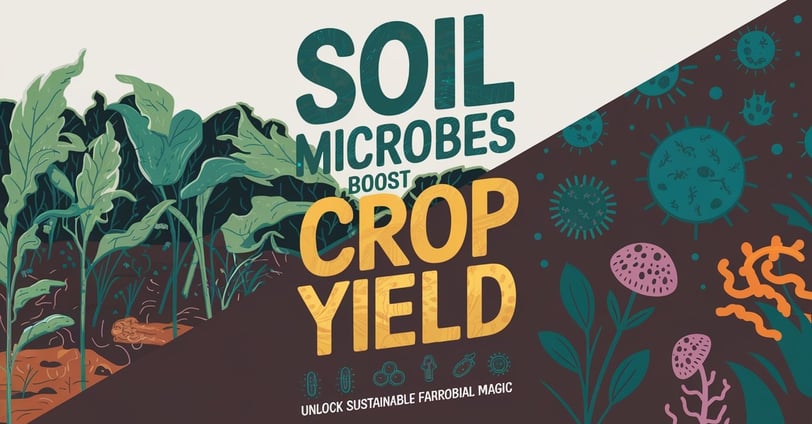The Impact of Soil Microbial Communities on Sustainable Agriculture
Explore how soil microbial communities influence soil health and crop productivity, as highlighted in a recent study. Discover the importance of microbial diversity, interactions, and their positive effects on crop yield. Learn how promoting healthy soil microbes can lead to sustainable agriculture practices, reducing reliance on chemicals. Dive into future research directions and innovative agricultural solutions.


The Role of Microbial Communities in Soil Health and Crop Productivity
Introduction In recent years, the importance of soil microbial communities in agriculture has attracted considerable attention. A recent study published in Scientific Reports highlights the complex interactions between soil microorganisms and their impact on soil health and crop productivity.
Understanding Soil Microbial Communities Soil microbial communities include bacteria, fungi, archaea, and other microorganisms. These communities play an important role in nutrient cycling, decomposition of organic matter, and promotion of plant growth. The study emphasizes how different microbial species interact with each other and plants, creating a dynamic ecosystem that supports soil health.
Key findings from the study
Diversity and functionality: The study highlights the importance of microbial diversity in maintaining soil functionality. Diverse microbial communities are more resilient to environmental changes and can perform a wider range of ecological functions.
Interactions among microorganisms: The researchers found that interactions among microbial species, such as mutualism and competition, significantly affect soil processes. For example, some bacteria can increase nutrient availability for plants, while others can suppress soil-borne pathogens.
Impact on crop yield: One of the important findings is the positive correlation between healthy microbial communities and crop yield. The study shows that soils with rich microbial diversity support higher crop productivity, highlighting the potential of microbial management in sustainable agriculture.
Implications for sustainable agriculture The findings of this study have profound implications for sustainable agricultural practices. By promoting healthy soil microbial communities, farmers can reduce their reliance on chemical fertilizers and pesticides, leading to more sustainable and environmentally friendly farming practices. Techniques such as crop rotation, organic amendments, and reduced tillage can help promote beneficial microbial activity in the soil.
Future Directions The study opens new avenues for research in soil microbiology and its applications in agriculture. Future research can focus on understanding the specific roles of individual microbial species and developing microbial inoculants that can be used to enhance soil health and crop productivity.
Conclusion The study published in Scientific Reports underlines the important role of soil microbial communities in agriculture. By harnessing the power of these microbes, we can improve soil health, increase crop yields, and move towards more sustainable farming practices. As we continue to explore the complex world of soil microorganisms, the potential for innovative agricultural solutions is vast and promising.
Reference For more information, you can view the full study here.
Discover
Blogs to enhance your knowledge and curiosity.
Explore
Learn
info@learnerbuzz.com
© 2024. All rights reserved.
Terms & Conditions
